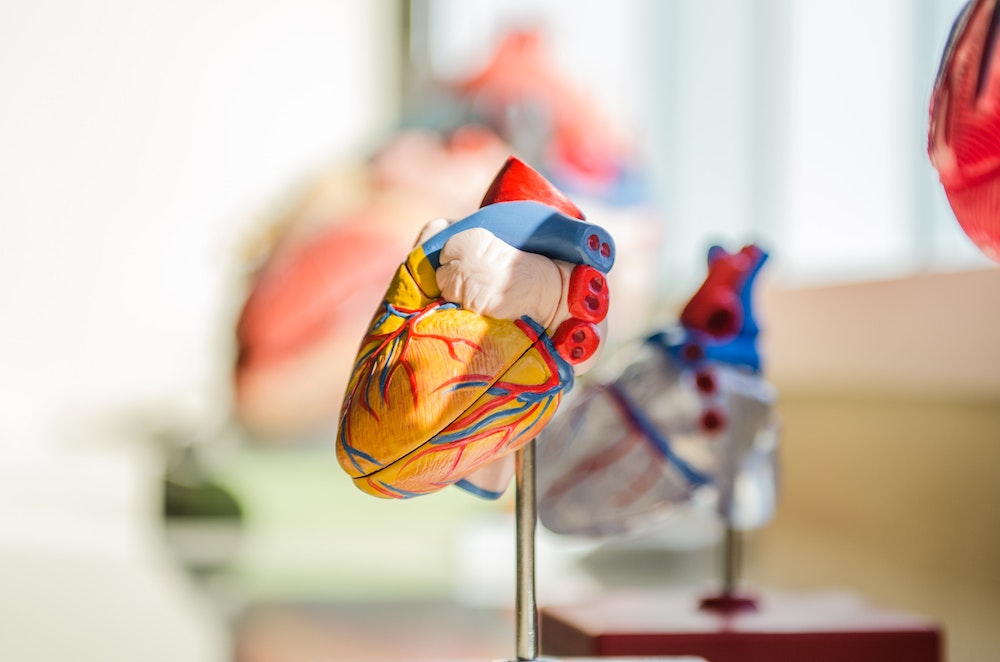Arginine Improves Cardiovascular Health and Physical Performance

Arginine is an essential amino acid with various health benefits, including improved cardiovascular health and physical performance. It is found in foods such as fish, poultry, nuts, and dairy products but can also be obtained from supplements.
This blog post will discuss how Arginine supports improved cardiovascular health and physical performance. We'll cover how it helps the body produce nitric oxide for better blood circulation, how it affects the production of growth hormones for enhanced muscle recovery and other beneficial effects that Arginine can have on your overall well-being.
What is Arginine?
Arginine is a semi-essential amino acid that plays a vital role in the body, particularly in the cardiovascular system. Arginine is involved in producing nitric oxide, which relaxes blood vessels and helps improve blood flow. Arginine also helps to remove waste products from the body and has been shown to improve physical performance.
What are the benefits of Arginine?
Arginine supplements have a range of potential health benefits. They are most commonly used to improve cardiovascular health and physical performance.
- Cardiovascular health: Arginine is converted into nitric oxide in the body. Nitric oxide relaxes blood vessels, improving blood flow and lowering blood pressure. This may help to prevent heart disease and improve circulation.
- Physical performance: Arginine may help improve exercise performance by increasing nitric oxide levels. This can increase blood flow and more oxygen reaching muscles during exercise. Arginine may also help to reduce recovery time after exercise.
- Other potential benefits: Arginine supplements have also been studied for their potential role in treating erectile dysfunction, improving fertility, wound healing, and boosting immune function. However, more research is needed before these uses can be recommended.
How does Arginine improve cardiovascular health?
Arginine is an amino acid that has many benefits for the body, including improving cardiovascular health. Arginine helps to produce nitric oxide, which relaxes blood vessels and improves blood flow. This can help to lower blood pressure and improve circulation.
Arginine also helps to prevent plaque buildup in the arteries, which can lead to heart disease. Additionally, Arginine can enhance physical performance by increasing blood flow to muscles.
How does Arginine improve physical performance?
Arginine, also known as L-arginine, is an amino acid produced naturally in the body. Additionally, it can be present in some foods like nuts, fish, pork, and fowl. Arginine plays a role in numerous bodily functions, including wound healing, removing ammonia from the body, and boosting immune function.
Arginine also has many benefits for cardiovascular health. It helps to relax blood vessels and improve blood flow. Arginine also helps to lower blood pressure and reduce cholesterol levels. All these effects can lead to improved heart health and decreased risk of heart disease.
In addition to its cardiovascular benefits, Arginine also improves physical performance. It increases muscle mass, decreases fat mass, and boosts exercise endurance. Arginine also helps to improve recovery time after exercise and reduces exercise-induced muscle soreness.
These effects are due to increased nitric oxide production in the body. Nitric oxide is a gas that dilates blood vessels and increases blood flow. This increased blood flow delivers more oxygen and nutrients to muscles, which leads to improved performance.
What are the side effects of Arginine?
Arginine is a semi-essential amino acid produced in the body and obtained through the diet. It is found in meats, poultry, fish, and nuts. Arginine is vital in many bodily functions, including wound healing, immune function, and hormone production.
Arginine also has many potential health benefits, such as improving cardiovascular health and physical performance. However, Arginine can also cause side effects in some people.
Arginine's most common side effect is gastrointestinal upset, such as abdominal pain, bloating, diarrhea, and nausea. Arginine can also cause allergic reactions in some people, such as hives, skin rash, and wheezing. If you experience any of these side effects after taking arginine supplements or eating foods high in Arginine, stop taking the supplement or eat fewer foods containing Arginine.
Arginine can also interact with certain medications, so it's important to talk to your doctor before taking arginine supplements if you are on any medications.
Conclusion
Arginine is an essential amino acid whose primary benefit is improving cardiovascular health and physical performance. Arginine helps reduce inflammation, improves blood flow, and boosts energy levels, making it an excellent supplement for those looking to expand their overall health or athletic performance.
With regular arginine consumption, you can expect improved heart function, greater endurance during workouts, and better recovery times after strenuous activities. Try including more Arginine in your diet if you want to boost the intensity of your workouts without primarily depending on drugs or supplements.
